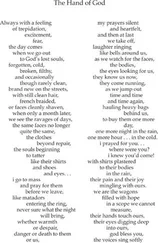Danielle Steel - Zoya
Здесь есть возможность читать онлайн «Danielle Steel - Zoya» весь текст электронной книги совершенно бесплатно (целиком полную версию без сокращений). В некоторых случаях можно слушать аудио, скачать через торрент в формате fb2 и присутствует краткое содержание. Год выпуска: 1989, ISBN: 1989, Издательство: Random House, Inc., Жанр: Старинная литература, на английском языке. Описание произведения, (предисловие) а так же отзывы посетителей доступны на портале библиотеки ЛибКат.
- Название:Zoya
- Автор:
- Издательство:Random House, Inc.
- Жанр:
- Год:1989
- ISBN:9780440203858
- Рейтинг книги:3 / 5. Голосов: 1
-
Избранное:Добавить в избранное
- Отзывы:
-
Ваша оценка:
- 60
- 1
- 2
- 3
- 4
- 5
Zoya: краткое содержание, описание и аннотация
Предлагаем к чтению аннотацию, описание, краткое содержание или предисловие (зависит от того, что написал сам автор книги «Zoya»). Если вы не нашли необходимую информацию о книге — напишите в комментариях, мы постараемся отыскать её.
Zoya — читать онлайн бесплатно полную книгу (весь текст) целиком
Ниже представлен текст книги, разбитый по страницам. Система сохранения места последней прочитанной страницы, позволяет с удобством читать онлайн бесплатно книгу «Zoya», без необходимости каждый раз заново искать на чём Вы остановились. Поставьте закладку, и сможете в любой момент перейти на страницу, на которой закончили чтение.
Интервал:
Закладка:
By mid-July, the city was warm, but still hungry. Zoya was horrified to hear from Vladimir that he and Yelena had been catching pigeons in the park, to eat them. He pronounced them surprisingly tasty and offered to bring them one, but Zoya declined, feeling ill at the thought. And two days afterward, as she began to despair that the war would ever end, Clayton reappeared like a vision in a dream. Zoya almost fainted when she first saw him. It was on the eve of Bastille Day and together they watched the parades from the Arc de Triomphe to the Place de la Concorde, the uniforms looked incredibly beautiful in the bright sun, the Chasseurs Alpins in their berets and black tunics, the British Life Guards, the Italian Bersaglieri in rooster-tail hats, even an anti-Bolshevik unit of Cossacks in für hats, but all she really saw that day was Clayton. When they returned to the house on the rue de Varennes, as deeply in love as ever, there was a fierce pounding on the door at midnight. The M.P.’s were rounding everyone up, all leaves were canceled, the German offensive had begun in earnest. German troops were only fifty miles away and the Allies had to stop them.
“But you can't go now …” Zoya cried. Tears filled her eyes in spite of her attempts to be brave. “You just got here!” He had only arrived that morning, and after six months without him, she couldn't bear to see him go so soon. But there was no choice. He had half an hour to report to the headquarters of the military police on the rue St. Anne. He barely had time to take her home, before they escorted him back to General Pershing. But to Zoya, it seemed cruel beyond words to have had so little time together before he went back to the front to risk his life again. And like a small child abandoned, she sat in her living room and cried late that night, as her grandmother brought her a cup of tea to console her.
But the tears she shed for Clayton were nothing to the tears she shed a few days later. On the twentieth of July, Vladimir appeared at the apartment with a solemn face, and a copy of Izvestia , the Russian newspaper. Zoya sensed instantly when she opened the door that something terrible had happened, and she felt almost ill as she escorted him inside and assisted her grandmother from the bedroom.
He began to cry as he held the newspaper out to her. He looked like a heartbroken child, his white hair almost the same color as his face, and repeating the same words again and again.“… They have killed him … oh my God … they've killed him …” He had come directly to them, they had a right to know, after all they were Romanov cousins.
“What do you mean?” Evgenia looked at him with horror, and rose halfway in her chair, as he showed her the notice in the paper. On the sixteenth of July, the Tsar Nicholas had been executed, it said. He had been shot. And it said that his family had been moved to safety. Moved to where? Zoya wanted to scream … where is my beloved Mashka? … where are they? … almost as though she knew, Sava began to keen softly, as the three Russians sat and cried for the man who had been their father, their Tsar … and was the two women's much loved cousin.
There were the sounds of sorrow in the room for a long time, and at last Vladimir stood and walked to the window, his head bowed, his heart heavy almost beyond bearing. All over the world the Russians who had loved him would be crying, even the peasants in whose name the dreaded revolution had been mounted.
“What a terrible, terrible day,” he said softly. “God rest his soul, he whispered, and turned to the women. Evgenia looked a hundred years old, and Zoya was deathly pale, the only color in her face the fierce green eyes, red-rimmed with tears, which still fell silently down her cheeks. All she could think of was that last morning in Tsarskoe Selo when he had kissed her good-bye and told her to be good … “I love you, Uncle Nicky,” her own words echoed in her head … and then he had told her he loved her too. And now he was dead. Gone forever. And the others? … she read the words in Izvestia again … ‘The family has been moved to safety.”
CHAPTER
24
July seemed to drag by like a nightmare. The fact that Nicholas had been killed seemed to weigh on them like an unbearable burden. Their gloom never seemed to lift anymore. All over Paris, Russians were grieving for him, as the war waged on around them.
Zoya was invited to a wedding celebration for one of the ballerinas she knew. Her name was Olga Khokhlova and she had married Pablo Picasso a few weeks before at St. Alexander Nevsky, but Zoya had no desire to go anywhere now. She wore the few black dresses she had, and was in deepest mourning for her cousin.
In August, Diaghilev cabled her once again, this time with an offer to join his troupe for a tour in London, but she still couldn't leave her grandmother, and she didn't want to see anyone. She could barely make herself go to work, which she did each day, just so they could put food on their table.
And in September, the Allies pressed ahead once more, and within a few weeks, the Germans were attempting to negotiate peace with them. But there was still no news of Clayton. Zoya barely dared to think of him now. If something happened to him too, she knew she couldn't go on living. It was all too much to bear, too much to think about, impossible to understand. Uncle Nicky was dead. The words rang again and again in her head. She had written three letters to Marie since she heard the news, but as yet there had been no answer. She was no longer clear about where Dr. Botkin was, and if the family had been moved, as the newspaper had said, it was impossible to say how long it would take for the letters to reach her.
But finally, after an endless October of silence from those she loved, November came, and with it peace at last.
They sat in their living room when they heard the news, listening to the shouting in the streets, the screams, the jubilation, the church bells, the cannons. It had finally come to an end. The whole world had shuddered from the blow of it, but now, at last, it was finished. The great war was over.
She quietly poured her grandmother a cup of tea, and without a word, she stood watching the celebrations in the street from the window. There were Allied troops everywhere, Americans, English, Italians, French, but she didn't even know if Clayton was still alive, and she hardly dared to hope. She turned to look at Evgenia, so old now, so frail, the cough that had plagued her the previous winter had returned, and her knees were so bad she could no longer leave the apartment.
“Things will be better now, little Zoya,” she said softly, but she was racked by coughs as she said it. She knew what was on the girl's mind. She hadn't heard from Clayton since he left Paris at midnight on Bastille Day. “He'll come home to you, little one. Trust a little bit. You must have faith.” She smiled at her gently, but there was no joy in Zoya's eyes anymore. She had lost too much. And she was worried about too many.
“How can you still say that? With so many people gone … how can you believe anyone will come home again?”
“The world goes on. People are born, and die, and others are born after them. It is only our own sadness that is so painful. Nicholas knows no pain now. He is at peace.”
“And the others?” She had now written five letters to Marie, and all of them were still unanswered.
“We can only pray for their safety.” Zoya nodded. She had heard it all before. She was angry now at the fates that had taken so much from them.
It was almost impossible to get through the streets during those first days after the armistice, and she only went out to bring back food for them. Once again, their supplies had dwindled to almost nothing. There were no performances of the ballet, and they had to get by on the tiny sum she had saved. It suddenly all seemed so exhausting.
Читать дальшеИнтервал:
Закладка:
Похожие книги на «Zoya»
Представляем Вашему вниманию похожие книги на «Zoya» списком для выбора. Мы отобрали схожую по названию и смыслу литературу в надежде предоставить читателям больше вариантов отыскать новые, интересные, ещё непрочитанные произведения.
Обсуждение, отзывы о книге «Zoya» и просто собственные мнения читателей. Оставьте ваши комментарии, напишите, что Вы думаете о произведении, его смысле или главных героях. Укажите что конкретно понравилось, а что нет, и почему Вы так считаете.










